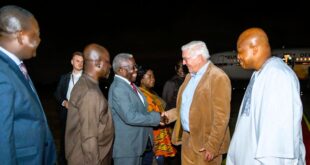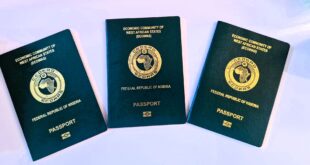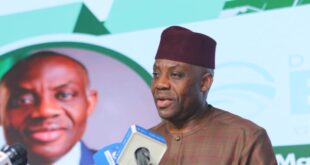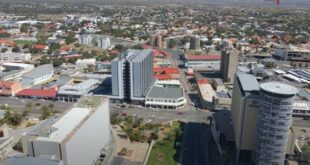The Economic Community of West African States (ECOWAS) has suspended the membership of Guinea in the regional bloc. The leaders of the body, who met via a video conference on Wednesday, was reacting to the recent coup d’état in the country.
ECOWAS, in a communiqué issued after the 1-day meeting, announced the suspension of Guinea from the body and called for the “immediate return to constitutional order” in the country.
“The Authority [of Heads of State and Government] expresses deep concern over the political developments in the Republic of Guinea following the coup d’état of 5 September 2021 and their consequences for regional peace and stability. It reaffirms its unreserved opposition to any political change by unconstitutional means and condemns, in the strongest terms, this coup,” the statement said.
“The Authority demands respect for the physical safety of the President of the Republic and Head of State, H.E. Alpha Condé, and his immediate and unconditional release, as well as that of all arrested persons. It holds the coup plotters, under the aegis of the National Committee for Reconciliation and Development (CNRD), individually and collectively responsible for the physical safety of President Alpha Condé and the arrested persons.”
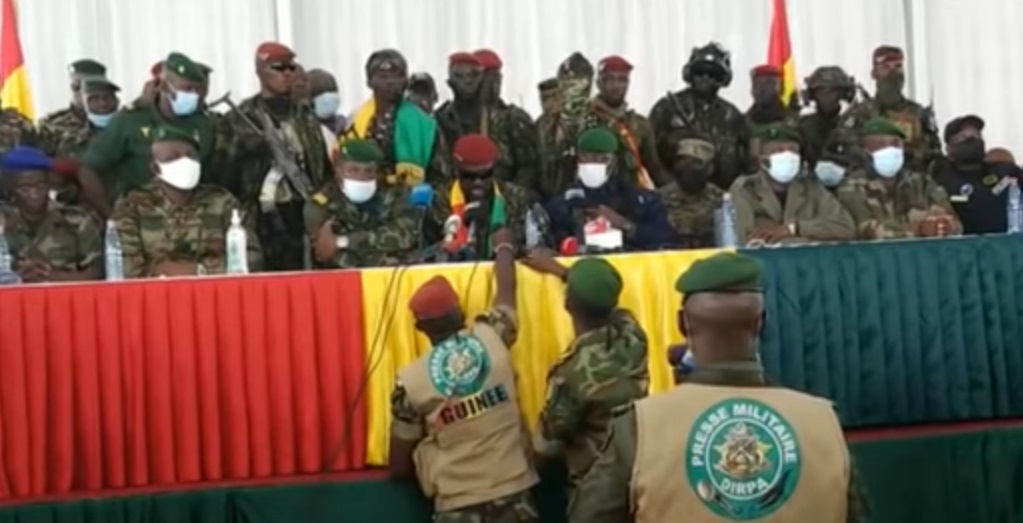
The ECOWAS leaders, under the chairmanship of President Nana Addo Dankwa Akufo-Addo of Ghana, also called on the African Union and the UN to endorse its decision and suspend Guinea as well.
The regional bloc said it would send a high-level mission to Conakry to assess the situation in the country.
Troops led by Lieutenant-Colonel Mamady Doumbouya of the Special Forces of Guinea seized power from President Alpha Condé on Sunday, citing corruption and poverty in the country and lack of adherence to the principle of democracy by the deposed leader.
The UN General Secretary and his AU counterpart have both condemned the military takeover and called on Doumbouya and his fellow officers to return the country to constitutional rule immediately.
The Guinean military rulers have however said it would stabilise the country and initiate an orderly return to civilian rule at the appropriate time.
The massive street demonstration of support for the coup by ordinary Guineans shows the unpopularity of Condé, who won a third term in office last year after he engineered the amendment of the country’s constitution to remove term limit, leading to mass protests in the country.
Condé’s election in 2010 marked the first democratic transfer of power in the country since it gained independence from France in 1958. The former opposition leader was reelected in 2015 and towards the end of his second term, he caused the constitution to be amended paving the way for him to contest for a third term.
Condé’s controversial reelection last October was characterised by fraud and violence, the country’s main opposition party, Union of Democratic Forces of Guinea (UFDG), alleged. In an interview with the German international broadcaster DW, Cellou Dalein Diallo, who is UFDG’s leader and Condé’s main political opponent, descried the coup as ‘a patriotic act’.
Even though he was in principle against military intervention in politics, Guinea faced a “a situation where Alpha Condé has seized power by violating the constitution, by violating his oath, by trampling on all the rules and principles of democracy and the rule of law”.
The latest coup in Guinea and the one in Mali last year coupled with the amendment of constitution to enable sitting presidents to contest beyond two terms in Guinea and Côte d’Ivoire are seen as democracy backsliding in West Africa. Analysts say these events could encourage ambitious military officers to tap into popular disaffection in other countries in the region to seize power.
Kola Tella
 THE AFRICAN COURIER. Reporting Africa and its Diaspora! The African Courier is an international magazine published in Germany to report on Africa and the Diaspora African experience. The first issue of the bimonthly magazine appeared on the newsstands on 15 February 1998. The African Courier is a communication forum for European-African political, economic and cultural exchanges, and a voice for Africa in Europe.
THE AFRICAN COURIER. Reporting Africa and its Diaspora! The African Courier is an international magazine published in Germany to report on Africa and the Diaspora African experience. The first issue of the bimonthly magazine appeared on the newsstands on 15 February 1998. The African Courier is a communication forum for European-African political, economic and cultural exchanges, and a voice for Africa in Europe.






